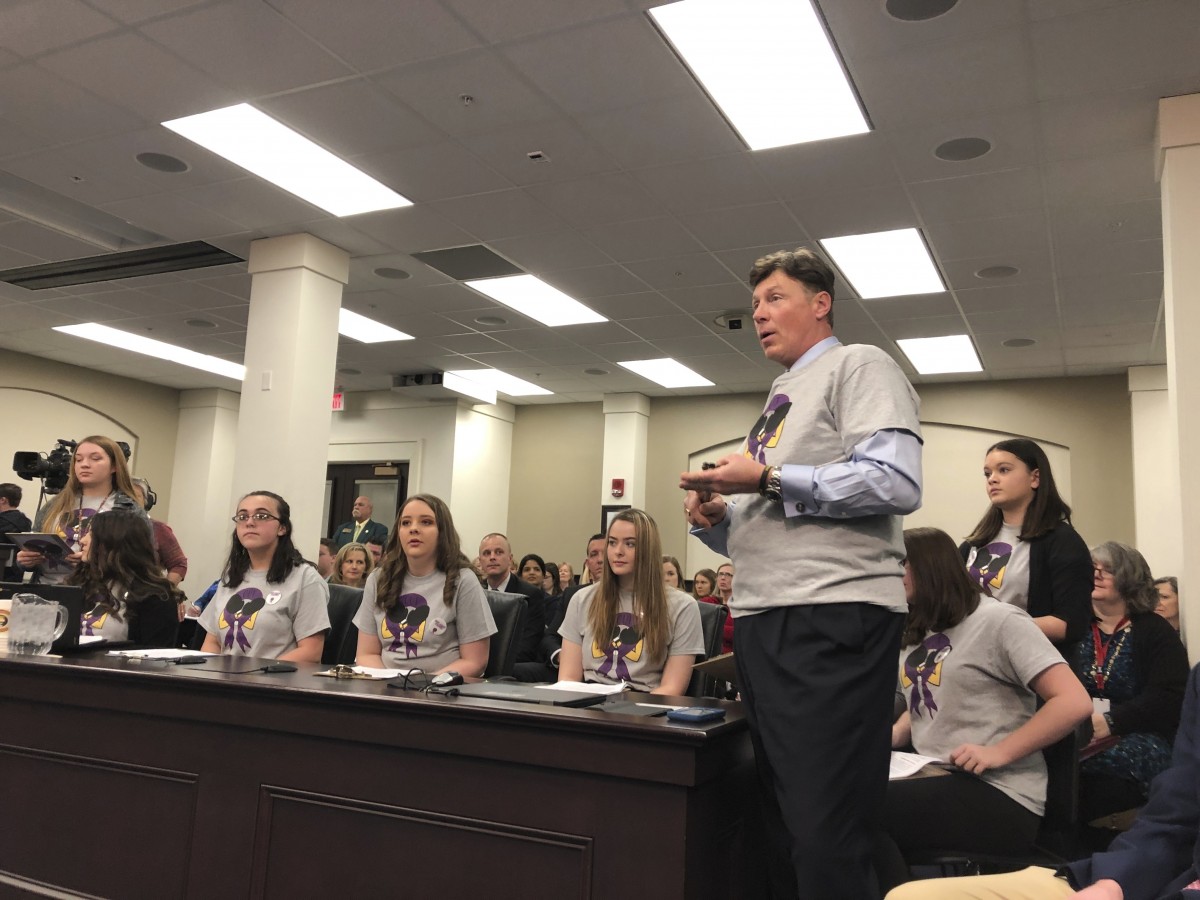Low-income Americans are dying at a higher rate than high-income Americans. In fact, the life span of low-income Americans is becoming shorter – a trend largely attributed to drug and alcohol-related deaths, which has been called deaths of despair.
“The least well-off Americans have seen their wages become stagnant, their jobs become obsolete, their neighborhoods crumbling in various ways. And so there’s a thought that that leads to despair for less-educated Americans and they turn to drugs or suicide,” explained University of Michigan professor Arline Geronimus.
Geronimus was the lead on a new study that argues higher rates of death among low-income Americans are due to inequity, not despair. She talked about her research in a conversation with West Virginia Public Broadcasting’s health reporter Kara Lofton.
Lofton: But your research actually challenges that theory [of despair], correct?
Geronimus: That’s correct. My theory doesn’t necessarily challenge that the increase is due in some way to the fact that life has gotten much harder. I mean, resources have gotten fewer, for the working class and for the least-educated Americans. But it challenges whether their response to it is despair, as opposed to working that much harder to make ends meet, to support their families, to overcome the obstacles in their way.
There’s a rich literature suggesting that when you work so tenaciously against barriers or difficulties or trying to make ends meet or working multiple jobs, that [in] itself can lead to chronic physiological stress reactions in your body that over time cause wear and tear in your body and can lead to sort of accelerated aging, the early onset of a variety of chronic diseases, cardiovascular diseases, cancers. And so you might also see this increasing inequity in life expectancy if what was happening was people are working so hard and under uncertainty and hard conditions that it wears away at their bodies.
Lofton: So you’re basically pointing to research that shows that chronic stress can impact the body’s health responses. So how healthy somebody is, is impacted by their stress in their lives.
Geronimus: Right and also how chronic it is, or unremitting, the different kinds of stress people think of stress is sort of just a feeling. But it’s more than a feeling. It’s a biological reaction and it can be triggered by feelings. But it can also be triggered by environmental factors, toxins in your environment, by sleeplessness, by working night shift jobs, from anxiety about how you’re going to make ends meet, how you’re going to get food on the table, how you’re going to pay the expensive hospital bill. You know, people have this vague notion of stress, but the stressors I’m talking about, include that idea of stress, but so much more.
Lofton: So I mean, but let’s tease this out a little bit. If you are chronically stressed about how you’re going to get to work, and how you are going to put food on the table for your family. I mean, doesn’t that contribute to a sense of despair?
Geronimus: It can, but the distinction that I’m making is despair, first of all, is entirely a feeling. And especially if you talk about deaths of despair, and look to suicide and opiate overdose, and put those together, it kind of paints this picture of people who just give up and tune out – just unproductive and depressed – and either literally kill themselves or kill themselves over time – or take risks that could have killed themselves very quickly.
That’s a very different thing than what I’m talking about, which is engaging with tenacity and even kind of hopefulness, the difficult obstacles – going to the two jobs, waiting for the bus, you know, not just going off and getting a drink. But that’s kind of what, in jargon is called “high-effort coping.” [It] itself can harm your body if it’s chronic. When the going gets as tough as it’s gotten for the least educated Americans over the last 25-30 years, if they choose to try to engage and support their families and themselves anyway, it’s sort of like batting their head against the wall.
Lofton: So you actually do talk about this quite a bit this idea of educational inequity and the role that educational inequity plays in sort of health disparities. Can you talk to me a little bit about that?
Geronimus: In our study, we looked at the least-educated Americans at any given time. So it’s not just [having] less than say, than [a] high school [education]. Because if [it] were, if you didn’t graduate high school 50 years ago, that might not be a big deal. But if you don’t graduate high school now, it certainly is, in terms of your opportunities. And over this period of time, because we’ve moved so much to a high-tech economy and an automated economy and a globalized economy, people with the least education are having the hardest time now finding jobs in our current economy. And even those who have them, and have had them even consistently, their real wages have stayed stagnant for 30 years, while prices of housing, food, health care, everything’s skyrocketed. So if your wages have stayed the same, your life is harder, even if you are employed.
Lofton: So what is the takeaway? What do you hope the study will contribute to the general conversation around the data that shows that Americans are not living as long as they used to?
Geronimus: That it shows that the main drivers of [death among low-income Americans] are cancers and cardiovascular diseases and internal causes. And that points in different directions than if you think people are despairing and taking drugs. And you would come up with different policies to address it. And as a researcher, we would pursue different avenues in researching it. And if in fact, it’s related to keeping on keeping on, even in the face of early onset of diseases and low wages and great uncertainty and illness in your family. That certainly points in directions that are different than ‘let’s just make sure we get opioids off the streets.’
This article was originally published by West Virginia Public Broadcasting.
Appalachia Health News is a project of West Virginia Public Broadcasting, with support from Marshall Health and Charleston Area Medical Center.



